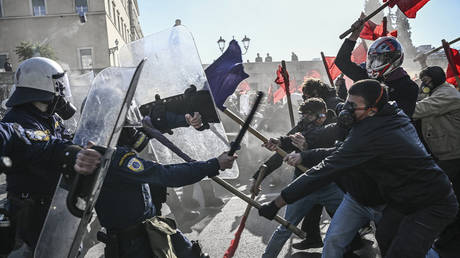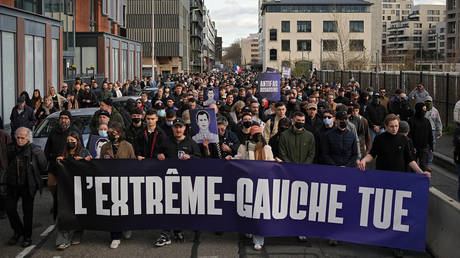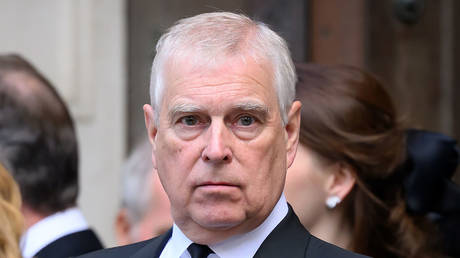
As Brussels becomes more alienated from realities on the streets, the union’s forthcoming elections might serve as a wake-up call
The European Union held a summit this week at which it aimed to convince Ukraine of its support for as long as it’s needed. Hungary balked, but its resistance was limited.
For prestige reasons and to demonstrate strategic unity, it was critical for the EU to secure approval for the long-term financing of Kiev. No one knows what will happen next, but it will be possible to adjust plans if necessary.
The EU summit reflected an interesting phenomenon – the ever-diverging agendas of the Western European ruling classes and those they govern. The main issue in Brussels is aid for Ukraine, while at the same time farmers are rioting in France and the Benelux countries, and Germany is paralyzed by a series of strikes. Of course, this is not because of Ukraine, but driven by the fall in living standards.
The European Council on Foreign Relations (ECFR), an influential transnational non-governmental organization, has published an analysis of sociological polls predicting the outcome of the European Parliament elections in June. Let’s be clear: it is not the European Parliament that determines the policies and prospects of the Old World. Whatever its eventual composition, this will be no revolution.
However, the peculiarities of the pan-European representative body are such that citizens vote, as we used to say, with their hearts and not with their pockets, as happens in elections to national parliaments. Voters’ immediate well-being depends on these representatives, which is why the experienced ones are often preferred over clever ones. But an MEP doesn’t determine anything in the life of an ordinary European, which is why you can let your feelings run wild and send the one you really like to Olympus without fear of things going down the drain. In other words, the European Parliament election results are a good indicator of the real mood.
The authors expect the June vote to show a sharp voter shift to the right, not towards moderate conservativism but to far-right parties, commonly referred to as populists. Many of them belong to the Eurosceptic category. They predict that such movements will come first in nine of the EU’s 27 countries and that they’ll significantly strengthen their position in nine others. In the European Parliament itself, for the first time in 45 years of elections to this body, a right-wing majority is likely to form, ranging from Christian Democrats and classical conservatives to national radicals.
However, this doesn’t mean the formation of an “unbreakable bloc”; the moderates are unlikely to engage seriously with the extremes. But the social shift to the right is undeniable.
This rightward shift is evidence of disillusionment with the establishment, which has seen little renewal in more than three decades, despite a wealth of impressive socio-political developments. After the Cold War, there was a leveling out of party platforms. Previously clearly labeled socialists, conservatives or liberals, whose approaches may not have been antagonistic but had differences, were lumped into a single mainstream.
European integration, multiplied by the worldwide process of globalization, almost eliminated policy variability. The latter was increasingly determined by external structural frameworks, and decisions were more and more often taken at the supranational level, above the governments of individual countries. And the ability of national leaders to respond to the aspirations of their peoples depended on their ability to work not only with their own populations, but also one floor above, seeking concessions and privileges from a centralized Brussels.
As long as people felt the benefits of globalization and politicians could clearly explain how the new steps towards integration were good for them personally, attacks on the establishment were the domain of the marginalized. However, the crisis of the global system, which began to manifest itself in various forms from the mid-2000s, changed dynamics within societies. It is in this period that the modern concept of “populism,” as a particular set of forces and sentiments opposed to a “correct” socio-political order, emerged and flourished.
Populism as an appeal to the masses against elites monopolizing influence is an old phenomenon. But at the beginning of the 21st century, in the spirit of the so-called “end of history,” these elites began to interpret their own line as the only true and legitimate one. Accordingly, those who oppose it are either deliberately wrong or deliberately malicious (singing “in someone else’s voice”). In this way, opposition to populism has led to fierce political antagonism.
There is a dangerous contradiction here for the EU. The “wrong” line, even if we think of it as such, increasingly resonates with what Europeans are worried about “on the ground” – from migration to economic problems caused by the abandonment of traditional energy sources. And the “right” point-of-view, aimed at fulfilling the bloc’s geopolitical commitments, does not seem to be a priority for a growing part of the population. Especially as these obligations imply a subordinate role for the EU in the Atlantic community.
So far, the Western European mainstream has been able to push its agenda through, albeit with some difficulties. But if the results of the above survey are to be believed, this will not always be the case.
This means that the bloc is set for further turbulence.
This article was first published by Rossiyskaya Gazeta newspaper, translated and edited by the RT team




